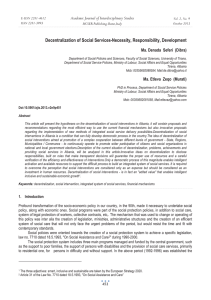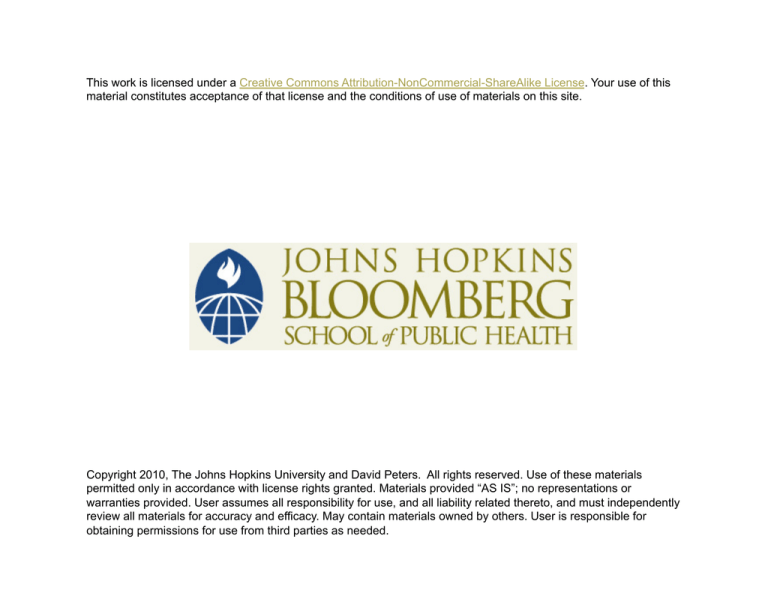
This work is licensed under a Creative Commons Attribution-NonCommercial-ShareAlike License. Your use of this
material constitutes acceptance of that license and the conditions of use of materials on this site.
Copyright 2010, The Johns Hopkins University and David Peters. All rights reserved. Use of these materials
permitted only in accordance with license rights granted. Materials provided “AS IS”; no representations or
warranties provided. User assumes all responsibility for use, and all liability related thereto, and must independently
review all materials for accuracy and efficacy. May contain materials owned by others. User is responsible for
obtaining permissions for use from third parties as needed.
Organizing the Health Sector:
Decentralization Issues
SWOT Analysis
Internal Aspects
External Aspects
+
Strengths
To be increased
Opportunities
To take advantage of
-
Weaknesses
To be eliminated
Threats
To be neutralized
The Promise of Decentralized Health
Services
• Improve efficiency – allow services and expenditures to be
shaped by users
• Promote innovation to fit local conditions
• Improve quality and transparency by user involvement in
decision-making
• Promote equity by redistributing resources
The Evidence on Decentralization of
Health Services in LMICs
• High level rhetoric
But
• Undelivered promises
Design flaw or implementation failure?
Decentralization in Public
Administration
• Deconcentration – within MOH
• Devolution – to local gov’ts
• Delegation – to autonomous agent
• Privatization – to private ownership
Henri Fayol’s 14 Flexible “Principles”
of Administration (1916)
14. Centralization/decentralization--find the best degree
of centralization (i.e. limitation of the role of
subordinates in decision making) in each case
–
Managers retain final responsibility but give
subordinates sufficient authority to do their jobs
properly
What Matters?
Who has…
• Responsibility
• Authority
• Resources
• The local environment
Decision Space for Local Managers:
Ability to Decide About Key Functions
• Governance
• Financing
• Organization of services
• Human resources
• Procurement
Model for Decision-Space Effects on
Health System Performance
Central Government
Provide Incentives,
Sanctions, Information
Change Decision
Space
Local Social &
Political Environment
Local Government
Choices
Innovation
Central Initiatives
No Change
Change in Health
System Performance?
Adapted from Bossert T. Analyzing the Decentralization of Health Systems in Developing Countries: Decision Space, Innovation
and Performance. Soc Sci Med 1998; 46(10): 1513-1527.
How Does the Environment Affect
Decentralization?
• Political organization
– Patronage
– Corruption
• Local social organization
–
–
–
–
Social capital
Responsiveness to community voice
Work ethic
Tolerance to poor governance
Enhancing Accountability or Spreading Corruption?
The Local Environment &
Decentralization: 3 Hypotheses
1.
2.
3.
Only in environments with strong political bodies and
social organization does decentralization succeed
A local environment that puts formal governance
structures in place can influence the local political and
social cultures to provide an enabling environment for
successful decentralization
There is a feedback between decision space and the local
environment that can escalate good and bad effects of
decentralized health system management
The Managers Response to Poor Local
Governance
• Decentralize anyway – it’s the right (ideological) thing to do;
invest in training
• Expect decentralization to increase differences between
localities – take measures to monitor and counteract them
• Dialogue with local population to find opportunities to
strengthen local social organization and political culture
• Build in mechanisms for accountability and change in
strategy

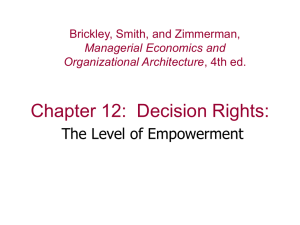


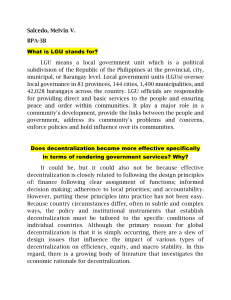

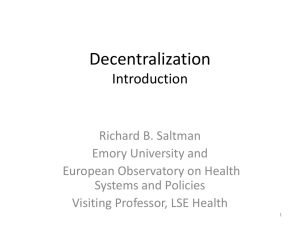
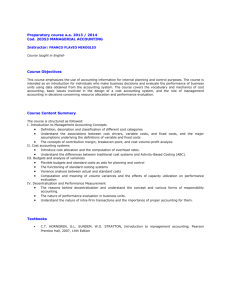
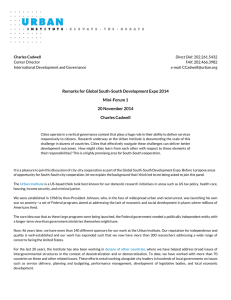

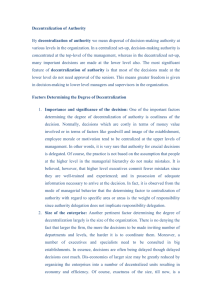
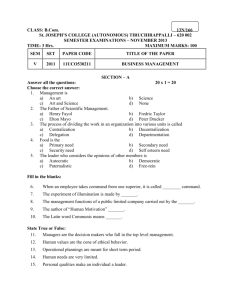


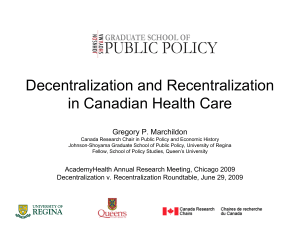
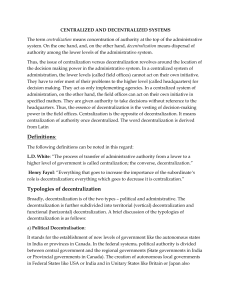
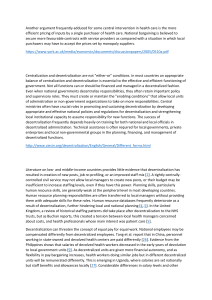
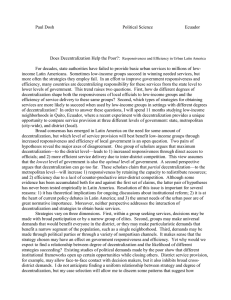
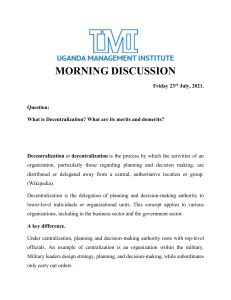
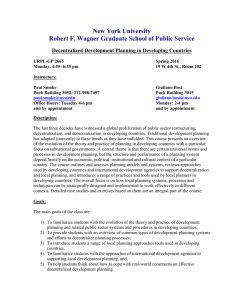
![Local Government ppt Note[1]](http://s2.studylib.net/store/data/026081462_1-a29f255f341a8ef18a56c6dcd48b13ef-300x300.png)

